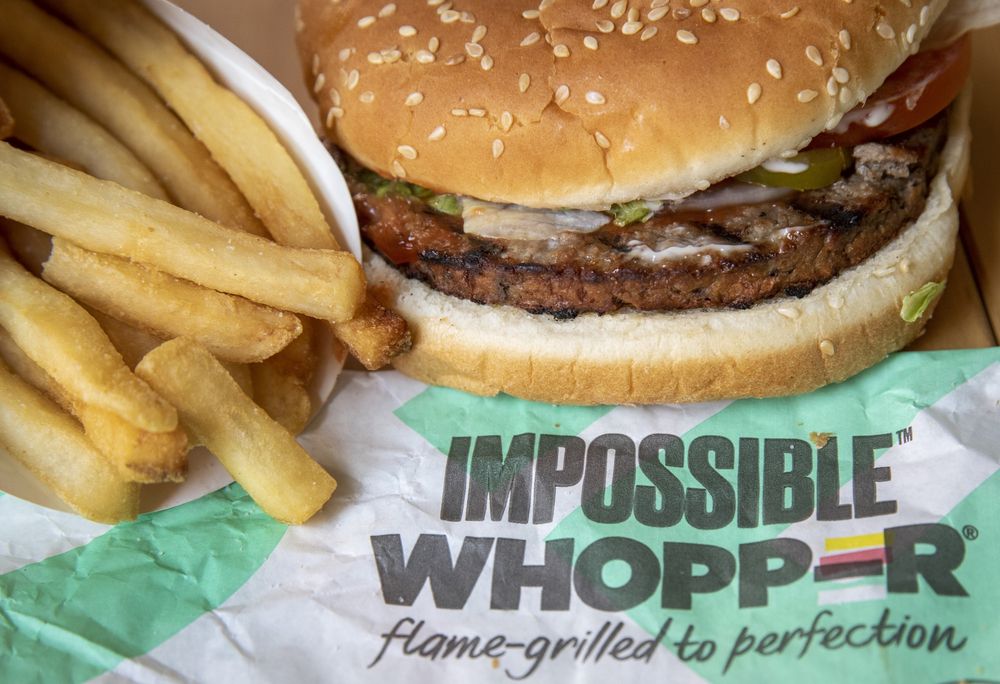Impossible Foods – the health benefits and risks of this plant-based meat alternative

A few minutes every morning is all you need.
Stay up to date on the world's Headlines and Human Stories. It's fun, it's factual, it's fluff-free.
As the plant-based food industry gains popularity among the masses, many still want to know – is Impossible meat healthy? Plant-based products are more varied and accessible than ever. But many people are still on the fence about the science and production process behind meat alternatives.
Impossible Foods, Inc. began in 2011 striving to eliminate intensive animal farming by offering plant-based alternatives. The brand gained popularity in 2016 when they launched their first meat analogue product, the Impossible Burger, made solely from plant-based ingredients. Since then, Impossible Foods has been tirelessly researching and developing plant-based products that taste and feel just like their meat counterparts. Their bold claims of using “97% less land and 80% less water” and emitting “about 87% less greenhouse gas than making a ground beef patty from cows” have certainly sprung global attention, but does this mean Impossible foods are healthier for human consumption?
The Impossible Burger catches on

With the “Impossible” brand garnering more attention, many restaurants and groceries stores have caught on with the trend, offering Impossible products in supermarkets and a variety of restaurants. Even fast food chains have jumped on the train. Burger King has an “Impossible Whopper,” Triple O’s sell their own “Impossible Burger,” and Little Caesar’s offer it as a pizza topping in the form of a meatless sausage.
Despite Impossible Foods being very transparent about the production process of their products, especially their Impossible Burger, many people still have concerns about the product. Some claim they are too good to be true. Impossible Foods claims on their website that although their ingredients are entirely plant-based, the burger has the same structural makeup found in normal burgers.
Protein is provided through soy and potatoes, while coconut and sunflower oil contribute the fats of the burger. The burger is held together with food starch and methylcellulose (a type of fiber used for thickening). However, the major ingredient of the plant-based burger is heme. Heme is the molecule that is responsible for the way meat tastes, and Impossible Foods has successfully reproduced the molecule with genetically modified and fermented yeast.
The benefits and risks of Impossible meat
One positive about Impossible meat alternatives is that the company’s claims seem true. The Impossible Burger tastes really good, and many say they cannot differentiate an Impossible Burger from an actual beef burger. This is a good alternative for those who want to transition to a vegetarian/vegan diet.
Apart from the burger tasting like a real beef burger, Impossible Foods has outlined its added environmental benefits, which have been verified. Also, because no cows are killed during the production process, the company has a Kosher certification, which they received in May 2018, as well as a Halal certification received in December 2018.
Despite its environmental and flavorful benefits, the Impossible meat sticks so closely to the makeup of actual meat that there isn’t any significant health benefit for consumers. A 4-ounce serving of Impossible Burger contains only 20 fewer calories than a regular beef burger. Also, since Impossible Burger relies solely on plants, their meat contains more sodium and has 9 grams less protein than a beef patty – two factors that hinder the product from being a viable solution to those wanting to lose weight. Therefore, the product cannot be classified as a health food. It’s not necessarily unhealthy, but incorporating Impossible meat into your diet will not help you accomplish your fitness goals faster than switching to a clean vegetarian or vegan diet.
As research and development for Impossible Foods continues to improve, there may be a day where consuming the Impossible Burger will be considered a healthier choice. However, for now, the upside to eating an Impossible Burger lies mainly with the environmental benefits – and the fact that no animals are harmed for your meal.
Have a tip or story? Get in touch with our reporters at tips@themilsource.com




Comments ()